Ineffective legislation: Sindh's children remain unprotected
Child Protection Authority fails to perform
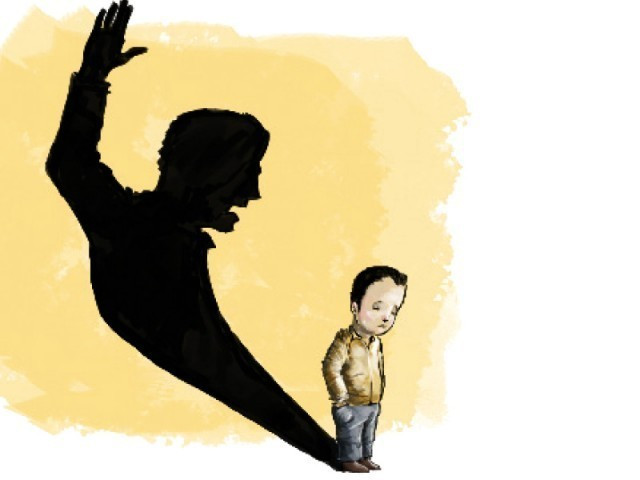
Photo: File
The provincial assembly passed a set of laws in 2011, on the basis of which the Sindh Child Protection Agency was notified in 2014. The funds for the agency were allocated in the 2016-17 budget, but the institution has yet to start operations.
The government had also established institutions for destitute and street children in three cities of the province, but scores of children can still be seen living on various pavements and in lanes. Proposals were also made to form remand homes for juvenile delinquents in all districts of Sindh. So far, however, these homes are only operational in Karachi.
Sindh CM wants to establish child protection units across province
Legislation against child labour has also gone without practical measures. Proposals for the formation of district-level monitoring committees for the education and health of children have not been implemented either.
The provincial government passed the bill for the formation of the Sindh Child Protection Authority on May 16, 2011. The proposed authority was responsible to monitor and control all child-related issues across Sindh, including sexual and physical abuse and human trafficking.
The bill was converted into a law after approval from the governor on June 9, 2011 but the notification from the government came as late as November 21, 2014. It took another year-and-a-half before the government approved the budget for the project. However, full implementation of the law still appears as to be distant dream. The authority was initially planned to develop as an autonomous body but its control was handed over to the Sindh social welfare department.
18-member committee formed in Sindh to implement child protection rights
Proposals for the establishment of child protection units in every district were also swept under the carpet.
A member of the Child Protection Authority, Zia Awan, told Express News that the institution is still going through phases of development and the rules of power and authority have recently been decided on.
"So far, we have only had four meetings in this regard," he said.
According to the staff working in different districts of the social welfare department, following the devastating floods of 2010, the government established various child protection centres throughout the province with the support of the United Nations International Children's Emergency Fund (UNICEF). However, the makeshift centres were closed after suspension of aid from UNICEF. Following the closure, social workers working for the project challenged the termination of their appointments in the Sindh High Court.
BISP launches Child Protection Campaign
Yasir Abbas, a young social worker who was appointed for Sukkur district, told Express News that the project was started by Sindh's social welfare department after UNICEF approved a grant for the province following the 2010 floods. The project, aimed to protect the rights of children, was named Violence, Exploitation, Neglect and Abuse (Vena) and child protection units were established in 13 districts of Sindh. Due to a shortage of funds, however, centres in all but five districts were closed in 2016. Operations in the remaining centres in Karachi, Hyderabad, Sukkur, Khairpur and Ghotki were suspended in December last year with their staff being told to pack their bags because the project had been suspended.
The first release of funds under the budget for the Child Protection Authority was utilised for the purchase of furniture and cars. The social welfare department spent most of the Rs20 million of the first installment on trivialities and luxuries. Special Adviser to the Chief Minister for Social Welfare and Sindh Child Protection Agency Deputy-General Shamim Mumtaz and Hafeezullah Abbasi shied away from commenting on account of meetings and personal engagements.
The provincial government had also planned to establish Darul Atfal centres for destitute and street children across all districts of Sindh. As of now, such centres can only be found in major cities like Karachi, Hyderabad and Sukkur, which are catering to a low number of children in need.
Police set up women, child protection centre
The sight of thousands of helpless children on the streets and lanes is a living testimony on the dismal performance of these centers. An estimated 10,000 children in Karachi alone are in need of shelter.
Similarly, the vision to build remand homes for juvenile delinquents remains unrealised, with only Karachi having a dedicated rehabilitation centre for young offenders.
According to Iqbal Detho, a child rights activist in Karachi, the government must ensure establishment of remand homes in at least every division. "Sindh has enacted several laws to protect its children but there is no regard for the implementation of these laws," Detho said.
He appealed to the authorities to ensure development of child protection units at district-level as well provision of hospital wards for children who are victims of sexual abuse. "In order to implement the laws of the Sindh Bonded Labour System Act, 2015, vigilance committees must be formed at the district-level," he said, stressing on the formation of monitoring committees for the prevention of child marriages as well as management of health and education-related issues of children.

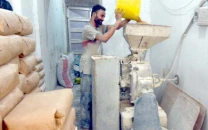



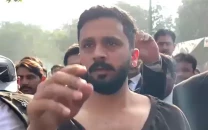
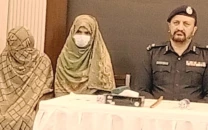

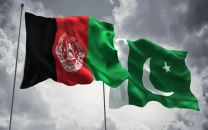

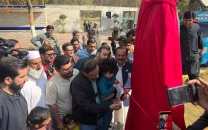

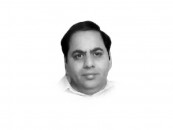





COMMENTS
Comments are moderated and generally will be posted if they are on-topic and not abusive.
For more information, please see our Comments FAQ